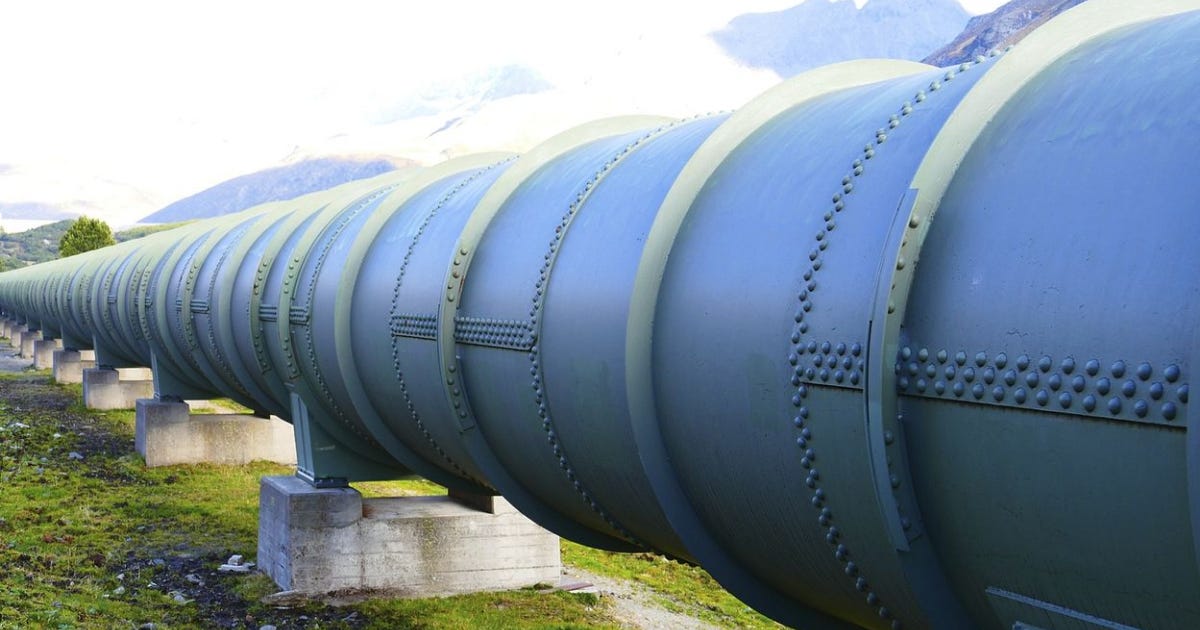Schulz defends Alberta pipeline plan as B.C., First Nations double down on tanker ban
Alberta’s Environment Minister Rebecca Schulz is firing back at British Columbia Premier David Eby and coastal First Nations, who are demanding the feds uphold an oil tanker ban.
Alberta’s Environment Minister Rebecca Schulz is firing back at British Columbia Premier David Eby and coastal First Nations, who are demanding the feds uphold an oil tanker ban on the province’s north coast.
Speaking to reporters and True North at the Alberta Legislature, Schulz said she had heard B.C.’s concerns but argued that one province cannot block another’s economic lifeline.
“We have heard the concerns of Premier Eby and a number of First Nations in British Columbia. That said, we have also seen a lot of support from First Nations communities who want to continue to see our energy industry grow and prosper,” said Schulz.
“We are working to address the concerns of Premier Eby and First Nations communities around having a strong proponent and ensuring that there is Indigenous engagement and co-ownership when it comes to that project.”
She added that Alberta’s position is rooted in Canada’s Constitution, not politics.
“It is the constitutional responsibility of the Prime Minister of Canada to ensure that there is free and fair trade across interprovincial boundaries and that one province or one premier cannot block the assets of five million Albertans in our most important industry,” said Schulz.
The comments came hours after Eby and coastal First Nations leaders signed a declaration urging Ottawa to uphold the federal Oil Tanker Moratorium Act, which prohibits crude oil tankers along the northern B.C. coast. Eby said the ban, which he said had been in practice for decades, remains essential to protecting both the environment and the province’s coastal economy.
“Putting it at risk to get rid of the oil tanker ban makes absolutely no sense either economically or for the country,” said Eby.
The B.C. premier said he has highlighted in various meetings with Prime Minister Mark Carney and other ministers that he believes the oil tanker ban is “a foundational and critical catalyst for economic activity in British Columbia and the nation, that it is the key that will unlock tens of thousands of jobs and billions of dollars in economic activity.”
He described the ban as a consensus that has existed for half a century and said there is “no pipeline project, no route, no proponent, no financing,” echoing nearly identical language used by Alberta NDP Leader Naheed Nenshi in a recent interview with True North.
Nenshi said Alberta’s proposed West Coast pipeline is “a pipe dream,” arguing that “there’s no project, no investor, no proponent, no consultation, no consent, not even a route.”
“We can’t allow the small minority of voices that are driving wedge politics in Alberta to drive the national conversation about what is a uniquely Canadian economy,” said Eby.
Coastal First Nations leaders joined Eby in defending the moratorium, warning that repealing it would threaten their way of life.
“We will never stop fighting to preserve our cultural and spiritual way of life,” said Chief Marilyn Slett, president of the Coastal First Nations.
Haida Nation President Jason Alsop added, “There’s absolutely no support for pipelines to the Northwest Coast or oil tankers in the waters around Haida Gwaii.”
The Alberta government maintains the ban blocks vital access to global markets.
Premier Danielle Smith has urged Ottawa to list a West Coast bitumen pipeline among its next wave of major projects—set to be announced by the Grey Cup—and previously warned that if the federal government and B.C. do not cooperate, she will turn south to willing partners in the United States.
“There is no universe where Alberta will tolerate being landlocked in our own country by our neighbouring province, especially when the same industry he continues to demonize has generated so much wealth for his province and the country,” said Smith. “The Supreme Court has determined that the reason we have a country and have given trade and commerce power and control over ports and inter-provincial infrastructure to the federal government, is for exactly this reason, so that a parochial premier isn’t able to block nation-building projects.”
While B.C. and First Nations leaders say the tanker ban safeguards jobs and ecosystems, Alberta argues that lifting it is key to restoring free trade and national unity.





These waterways already have much oil tanker and cruise ship traffic, so it would be helpful if we had a better explanation regarding how these specific tanker bans protect indigenous jobs, culture and spiritual way of life.
This country will never move forward if we continue to deny provinces the right to develop their resources.